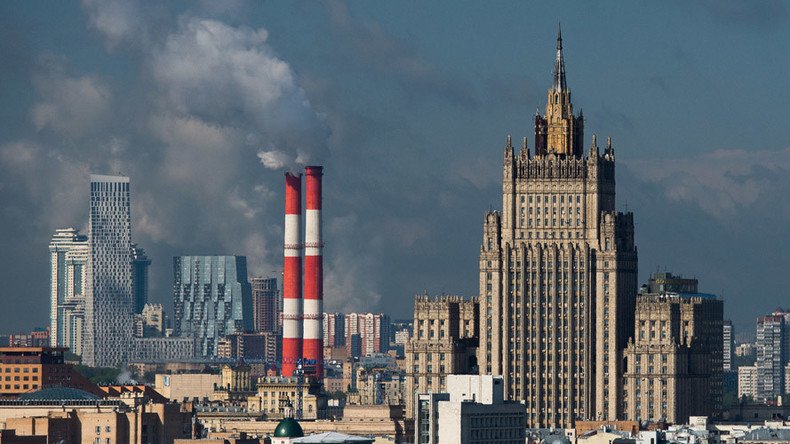5 best times Russian diplomacy worked

Seeking solutions to the Syrian crisis, fighting international terrorism, the Minsk peace talks, and the Iran nuclear deal – RT takes a look at some of Moscow’s achievements in the global arena on Diplomats’ Day, a Russian holiday marked on February 10.
Despite vitriolic attacks by Western governments and a widespread disinformation campaign by mainstream media, which attempt to paint Russia as an isolated pariah state, the successes of Moscow’s international leadership cannot be denied.
Here are a few highlights from recent years that demonstrate this.
READ MORE: 2015: The year Russia told America 'enough'
In 2013, the international community found itself on the brink of yet another western military intervention in the Middle East. Despite a lack of any concrete evidence, a chemical weapons attack carried out in Syria was almost immediately attributed to President Bashar Assad by Western governments and media sources. This prompted US President Barack Obama to seek Congressional approval to launch a military strike against Damascus in response, despite Russia’s urgings to exercise restraint.
However, Moscow came up with a peaceful resolution, with Russian President Vladimir Putin calling on his American counterpart and the international community to negotiate a deal with Syria putting its chemical weapons capabilities under international control. The episode became one of the first diplomatic successes in the Syrian conflict.
READ MORE: Netanyahu to Putin: Resolve Iran like you did Syria
Yet at the United Nations, some countries sought to portray Russia as one of the world’s main aggressors. While at first Moscow’s envoys reacted to such accusations in a reserved manner, as Russia began to strengthen its stances on the UN stage, Russia’s UN ambassador, Vitaly Churkin, was always ready to rebut any attack, calling on the intergovernmental organization to establish proper dialogue and balanced discussions. Moscow still has its veto right intact, regardless of Ukrainian President Petro Poroshenko’s loud calls for Russia to be deprived of its power in the UN Security Council.
READ MORE: Russia ‘isolated’? Kerry in Moscow to meet with Lavrov, 20th such talks in 2015
Moscow also helped initiate a peaceful way out of the Ukrainian crisis, taking part in the so-called Minsk agreements to secure a ceasefire in southeastern Ukraine. The Russian suggested format represented the interests of all sides and featured OSCE observers and top European negotiators, including Germany and France. The result was a peace deal in 2015.
READ MORE: Normandy 4 agree to keep Minsk agreement alive in E. Ukraine in 2016
Another ground-breaking deal was finally inked in 2015 following years of negotiations with Moscow’s active involvement – the Iran nuclear deal. Tehran’s nuclear program had been exacerbating tensions in international relations for years and was considered one of the world’s most burning issues. With the active promotion of Russia’s Foreign Minister and other top diplomats, international mediators, including Russia, the US, Britain, China, France and Germany, finally sat down for talks and reached a deal with Iran. The International Atomic Energy Agency (IAEA) recently confirmed that Tehran had complied with all of its obligations under the accord, and the US and EU have lifted their sanctions against the Middle Eastern state.
Led by its president, Vladimir Putin, Russia has been at the forefront of the fight against international terrorism and Islamic State (IS, formerly ISIS/ISIL) in particular. Putin’s speech at the 70th anniversary UN General Assembly in New York became the highlight of the international event. The G20 summit in the wake of a terror attack also saw all eyes drawn to the Russian leader, as Putin and Obama finally talked face to face for the first time since the G8 summit in Northern Ireland in 2013.












